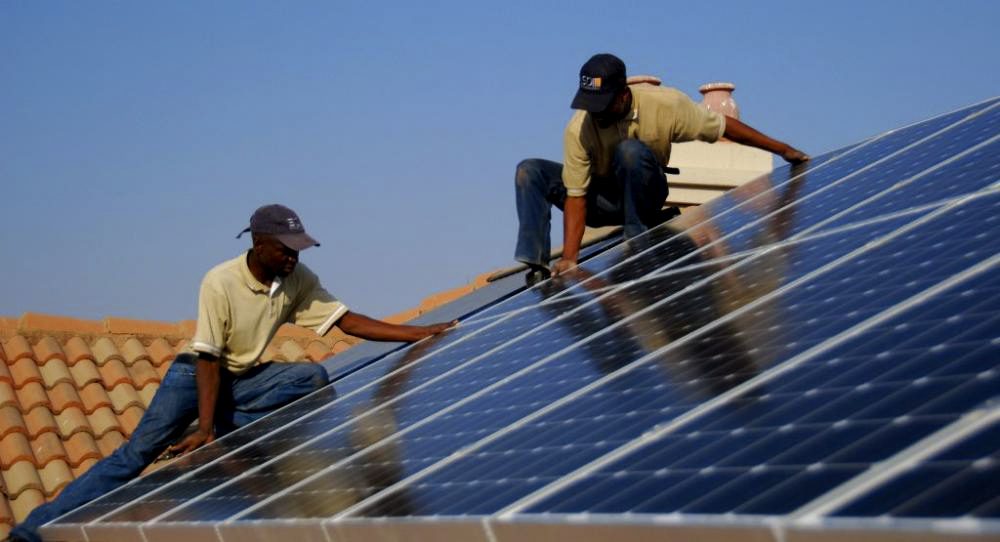About 25 million Nigerians who are expected to benefit from the Federal Government’s Solar Home Systems will be required to pay N4,000 monthly.
The Senior Special Assistant (SSA) to the Vice President on Media and Publicity, Laolu Akande, recently disclosed this in a statement titled: “25m Nigerians to Own Five Million Solar Systems at N4,000 Monthly”.
Akande who gave further insight into earlier reports about the venture said the Federal Government would commence the process of installation of five million solar home systems in under-served and off-grid communities across the country, and that the installation was in continuation of the implementation of the government’s Economic Sustainability Plan.
Responding to questions asked by Nigerians who wanted to know the cost and modality of paying for the solar systems, Akande explained that beneficiaries would pay the N4,000 monthly over a period of three years.
He said the solar programme nicknamed “Solar Power Naija” for which installations were due to start this month was being implemented by the Rural Electrification Agency (REA).
Renewable energy sources make up 26 per cent of the world’s electricity today.
Its share, according to the International Energy Agency (IEA), is expected to reach 30 per cent by 2024.
Renewable energy, which is also called alternative energy source, is sustainable because it will not run out; as sunshine, wind, tides and biomass cannot run out.
Other persuasive advantages of renewable energy include cost-effectiveness.
Besides cutting down on electricity bills, it further reduces the number of consumers that are solely dependent on the National Grid.
It is clean and further protects our planet from climate change because renewable sources of energy do not release carbon dioxide or other harmful pollutants into the atmosphere.
This is a plus for the health of users of renewable energy sources and their environment.
Maintenance requirements for renewable energy sources are also low.
For instance, solar panels have no moving parts and do not rely on flammable and combustible fuel sources to operate.
Solar energy is one of the sources of renewable energy. Solar power starts with solar energy; which is energy produced by the sun.
Sunlight is one of the most abundant and freely available energy resources; making it a good alternative power source for tropical countries, including Nigeria.
It increases access to electricity in communities where power supply has continued to remain a challenge. Solar power is also scalable.
When it is used on a small scale, extra electricity can be stored in a battery or fed back into the electricity grid. Overall, the sun gives off far more energy than required.
According to renewable energy experts, one hour of sunlight equals one year’s worth of energy for the entire earth.
The amount of solar energy usable for a period varies according to the time of day and the season of the year, as well as geographical location.
The power sector in Nigeria has, in the past three decades, remained one of the most unsurmountable areas of the country’s infrastructural development.
Despite its limitations that include low capacity to power huge appliances such as deep freezers, air conditioners and water heaters, the solar home systems will provide an alternative source of power to millions of Nigerians.
It will also forestall a situation where the whole country is thrown into darkness each time the National Grid collapses.
While government’s initiative in renewable energy source is a welcome development, the monthly charge of N4,000 for three years is still prohibitive even for many residents of urban towns let alone inhabitants of rural communities.
The country will no doubt reap benefits from this new scheme of electricity supply if made affordable.
Increased hours of electricity supply will improve students’ academic performance.
It will also impact positively on Small and Medium Scale Entrepreneurs (SMEs) which operations require minimum electricity voltage.
Therefore, we call on government to make this alternative power source affordable by reducing the monthly charge payable by consumers.

 Join Daily Trust WhatsApp Community For Quick Access To News and Happenings Around You.
Join Daily Trust WhatsApp Community For Quick Access To News and Happenings Around You.


